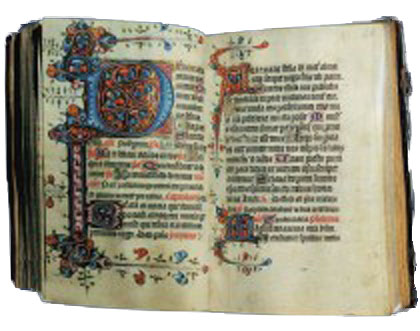Anyone who knows me at all knows that I’m a history nerd. I love reading it. I love studying it. I love teaching it. And my favourite period of history, ever? Medieval Britain.
So you can imagine my absolute joy when I learned that Leicester Cathedral has made a digital copy of Richard III’s personal prayer book, the ‘Book of Hours’, available to everyone, world-wide, absolutely free. Maybe they don’t realise that I, and many others like me, would have willingly parted with cold, hard cash for that. Needless to say, I went right over there and grabbed it.

Included with the digital version of Richard’s Book of Hours is a commentary by historians Anne F. Sutton and Livia Visser Fuchs, which offers insight and explanations for the text.
Richard III is possibly one of the most controversial English kings. He’s the one they dug up from underneath a public car park in Leicester in 2012, and re-buried in Leicester Cathedral in 2015. But that’s not why he’s controversial.
Richard is the key figure at the centre of the “did he, or did he not?” debate about the demise of the ‘Princes in the Tower’. Of course, nobody really knows. There’s a lot of evidence that he was the most likely suspect, but there’s also a number of good arguments for other parties being responsible. The fact is, we’ll probably never know.
centre of the “did he, or did he not?” debate about the demise of the ‘Princes in the Tower’. Of course, nobody really knows. There’s a lot of evidence that he was the most likely suspect, but there’s also a number of good arguments for other parties being responsible. The fact is, we’ll probably never know.
Either way, the Tudors very cleverly had Richard portrayed in both history and popular culture as the entirely self-serving, greedy, murderous, deceitful and manipulative hunchbacked king who murdered his way to the throne and effectively stole the kingdom of England from anyone who was more entitled to it than he.
That story was most famously perpetuated in Shakespeare’s play ‘Richard III’, which also caused him to be the most misquoted king of England ever. How many people actually believe that “A horse! A horse! My kingdom for a horse!” meant that he was willing to swap his kingdom for a horse, presumably with the intention of escaping on it? In actual fact, even in Shakespeare’s play, he was saying that if he couldn’t get a horse to replace his own, which had been killed in battle, he would surely lose his kingdom to Henry Tudor. As I’ve pointed out to my own students, if Shakespeare had actually thought of making him look that cowardly and heartless about his own kingdom, he might have written it that way, but he didn’t. The Tudor bias in both the recorded history and in Shakespeare’s play did mean that for the last 550 years or so, most people have quite happily assumed the worst of Richard.
Richard’s Book of Hours suggests a different side to this man. Owning a prayer book is one thing; using it is another. Richard made personal notes in this book – a comment in the margin, a note about his birthday. Given the rarity of books at the time of Richard’s reign from 1483 until his death in 1485, one would be reluctant to write in a book unless they were actually using it. In some other similar books , there are occasional little notes written beside the text of the book by whichever priest was either writing or studying the text. We must understand, though, that it’s different than a teenager drawing winky faces next to the rude bits in Shakespeare.
One such note we can be absolutely certain was added by Richard to this book is “dolor”, which means ‘grief’. Having experienced the death of both his only son and then his wife, Richard was indeed a man familiar with grief.
When I consider the images of Richard’s Book of Hours, I think of a man who was conscious of his standing before God and who used this book daily. I think of the man contemplating his fate on the night before the Battle of Bosworth, where contemporary sources suggest he had a daily prayer book right there with him in his tent. He was a man who prayed. Those records also tell us that Richard participated in a service of Mass before going into battle. Obviously, I cannot vouch for his sincerity because I never met the man, but it does make one consider another perspective of this perhaps much-maligned king.
After the Battle of Bosworth where Richard died and Henry Tudor became Henry VII of England, Richard’s prayer book was gifted to Henry’s mother, Margaret Tudor. She didn’t scratch Richard’s name out of the front of the book, but she did write a short poem in the back that stated the book now belonged to her.
Thankfully, the book now belongs to Leicester Cathedral, who have generously shared it with all of us. Even in digital form, I find that very, very exciting.
Sources:
http://www.medievalists.net/2015/03/richard-iiis-book-of-hours/
http://www.medievalhistories.com/book-of-hours-of-richard-iii/
http://www.lambethpalacelibrary.org/content/annunciation
http://leicestercathedral.org/about-us/richard-iii/book-hours/

